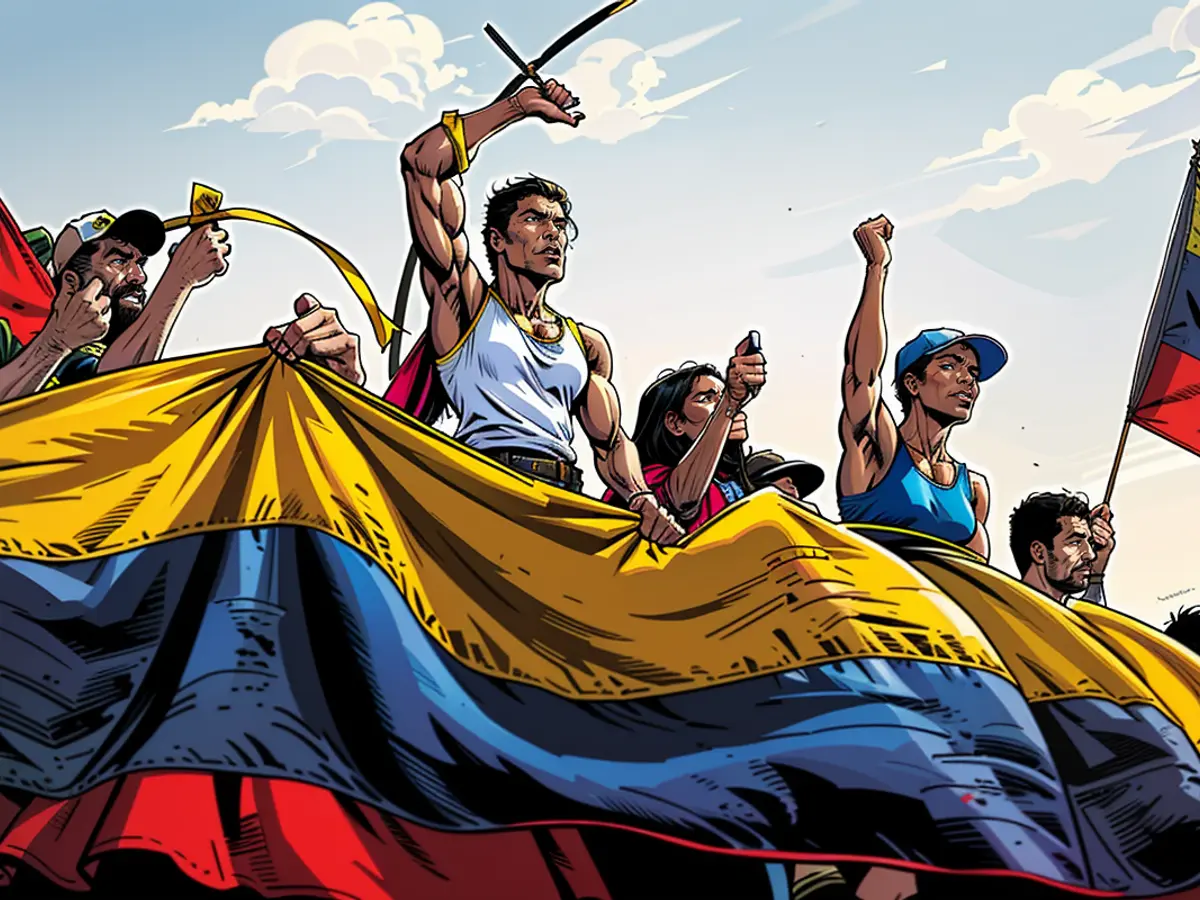- Venezuela's opposition challenges President Maduro
The opposition in Venezuela is standing up to the authoritarian leader Nicolás Maduro following the controversial presidential election. Opposition candidate Edmundo González Urrutia was declared the winner by opposition leader María Corina Machado. Earlier, the electoral authority of the crisis-stricken South American country had officially declared Maduro the winner.
The opposition accuses the government of fraud. The European Union, the USA, and several Latin American countries have also raised doubts about the fairness of the election and its results.
In the capital Caracas, protests against Maduro erupted. "She will fall, she will fall, this government will fall," chanted protesters in the Petare slum. They blocked streets and set up barricades, as seen on the NTN24 television station. Police fired tear gas and rubber bullets at the protesters. Videos also showed men in civilian clothes shooting pistols at the protesters.
The opposition has called for a large demonstration against the government on Tuesday. "We are determined to defend the truth and ensure that every vote is counted," said opposition leader Machado. The government camp also plans to mobilize its supporters. Parliamentary President Jorge Rodríguez called on Maduro's supporters to march to the presidential palace of Miraflores.
The government in Caracas has expelled critical diplomats from several Latin American countries. The envoys of Argentina, Chile, Costa Rica, Peru, Panama, the Dominican Republic, and Uruguay were ordered to leave the country. Simultaneously, the government also withdrew its diplomatic staff from these countries.
Both the European Union and the United Nations have called on the National Electoral Council to publish detailed voting data amid allegations of manipulation. "The election results have not been verified and cannot be considered representative of the will of the Venezuelan people until all official records from the polling stations are published and verified," said EU foreign policy chief Josep Borrell.
Human rights activists count over 300 political prisoners
The long-standing political crisis in the South American country could now escalate further. Maduro's re-election in 2018 was not recognized by many countries internationally. In 2019, then-parliamentary president Juan Guaidó declared himself interim president but failed to gain traction in the country, mainly because the military backed Maduro. Security forces are cracking down hard on government opponents. Human rights activists report that over 300 political prisoners are behind bars.
The former union leader and bus driver Maduro took over from the charismatic president Hugo Chávez in 2013 after Chávez died of cancer at the age of 59. Under Maduro, the situation in the once-wealthy country with its vast oil reserves has deteriorated rapidly.
Venezuela suffers from mismanagement, corruption, and international sanctions. More than 80% of the population lives below the poverty line. According to UN figures, over seven million people - around a quarter of the population - have left the country in recent years due to poverty and violence.
The opposition is planning to participate in a large demonstration against the government's actions on Tuesday, as announced by opposition leader Maria Corina Machado. This demonstration, known as ['The demonstration'], is aimed at defending the truth and ensuring every vote is counted.
The controversial election results, which the opposition and international entities such as the EU and UN question, have further intensified ['The crisis'] in Venezuela, with allegations of manipulation and over 300 political prisoners reported by human rights activists.








